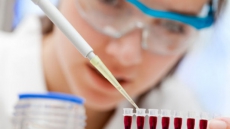Everyday cosmetic and cleaning products contain huge quantities of plastic particles, which are released in the environment and could be harmful to marine life, says a new study.
Almost 100,000 tiny 'microbeads' - each a fraction of a millimetre in diameter - could be released in every single application of certain products, such as facial scrubs, the findings showed.
"As the study unfolded I was really shocked to see the quantity of microplastics apparent in these everyday cosmetics,” said one of the lead researchers Imogen Napper of Plymouth University in England.
The particles are incorporated as bulking agents and abrasives, and because of their small size it is expected many will not be intercepted by conventional sewage treatment, and are so released into rivers and oceans.
This could result in up to 80 tonnes of unnecessary microplastic waste entering the sea every year from use of these cosmetics in Britain alone.
Microplastics have been used to replace natural exfoliating materials in cosmetics and have been reported in a variety of products such as hand cleansers, soaps, toothpaste, shaving foam, bubble bath, sunscreen and shampoo.
For this study, researchers chose brands of facial scrubs which listed plastics among their ingredients, and these were subjected to vacuum filtration to obtain the plastic particles.
Subsequent analysis using electron microscopy showed that each 150 ml of the products could contain between 137,000 and 2.8 million microparticles.
"Currently, there are reported to be 80 facial scrubs in the UK market which contain plastic material, however some companies have indicated they will voluntarily phase them out from their products. In the meantime, there is very little the consumer can do to prevent this source of pollution," Napper noted.
The findings appeared in the journal Marine Pollution Bulletin.





